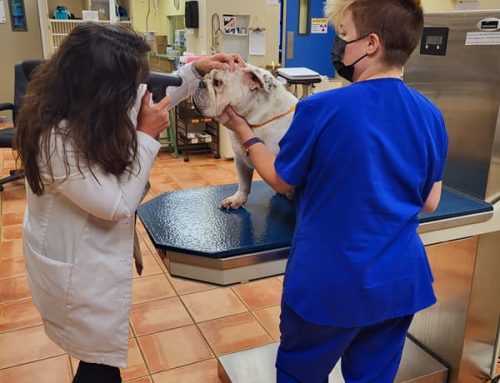
It’s a common misconception that fleas aren’t a problem in the winter, so people let up on treating their animals. Consequently, we’re seeing a lot of patients come in with various ailments that are caused by fleas.
The year round truth is that fleas don’t die in freezing weather unless the temperature stays below 32° for 72 hours. Even if it stays that cold, fleas can find a warm spot on an animal, in a barn, near a heating vent, or in your house.
Before you make an appointment with us, turn your dog or cat over and check the groin and armpit, the two areas where fleas love to hide. If you see black peppery material (aka flea dirt), you probably have fleas. Redness, a rash, broken skin, or other changes in the skin could indicate a different problem and should be evaluated.
If you see fleas, the first thing is to resume prevention right away. Simparica®, Trifexis®, and Vectra® all work systemically , and fleas die shortly thereafter. If your pet continues to have symptoms, we may still need to prescribe antihistamines, steroids, antibiotics, or antifungals.
Just remember. Winter weather doesn’t mean that you don’t have to worry about fleas or ticks. Both of these parasites require year round vigilance to keep them at bay.




